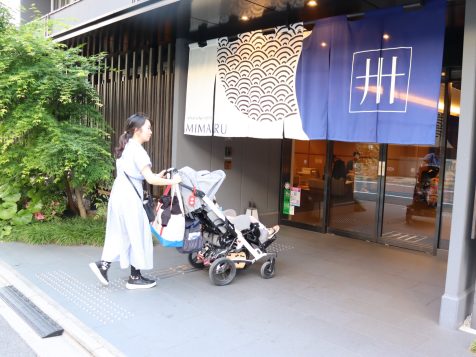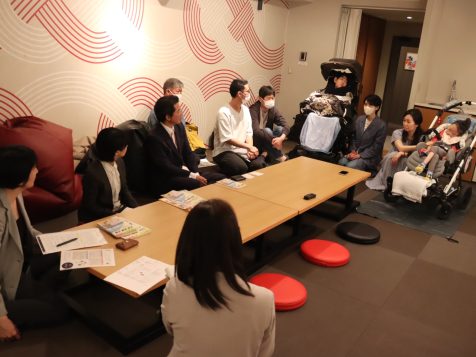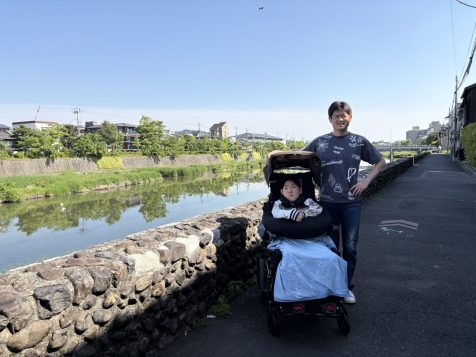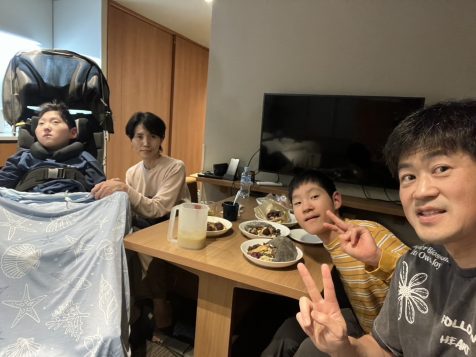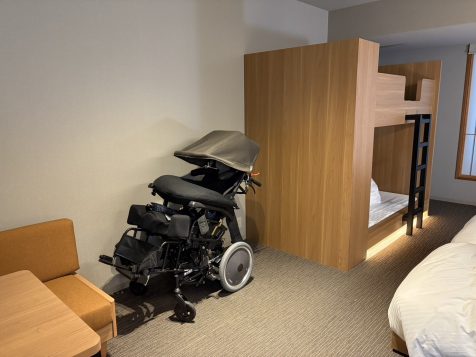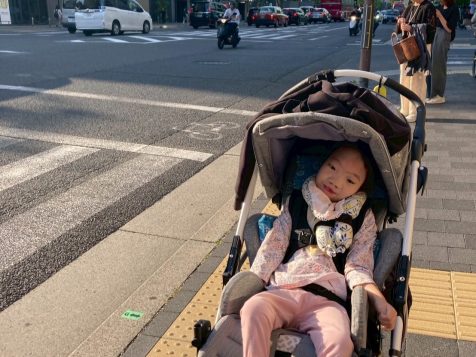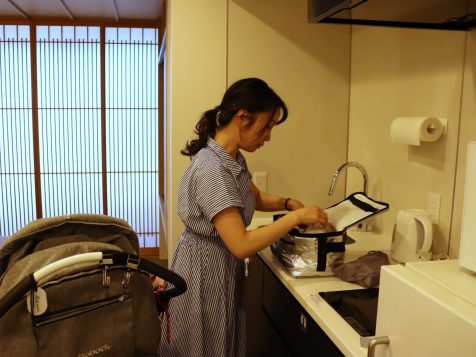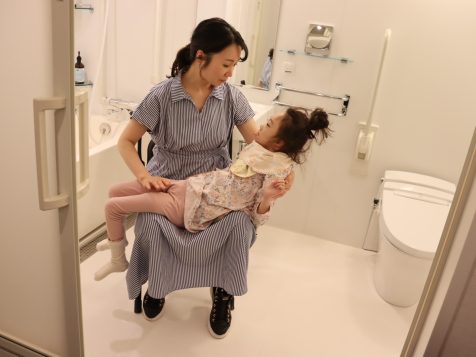~Insights from Discussions on Present Travel Conditions and the Challenges in Creating a Supportive Environment~
This event aims to create a safe and comfortable travel experience for children who need medical care and their families by bringing together families, front staff, and support organizations for open conversations, taking an important first step toward building a more inclusive society where everyone can enjoy travel and stay together with peace of mind.
■The Travel Barriers Faced by Children Requiring Medical Care and Their Families
What are“Children with medical dependency”? This term refers to children who need daily medical support, such as ventilators, suctioning of phlegm, or tube feeding.
Thanks to advances in medical care, the number of medically dependent children receiving care at home in Japan has doubled – from 9,987 in 2005 to 20,180 in 2021.
Source: https://www.mhlw.go.jp/content/000981371.pdf
■ Trial Stay and Feedback Session Overview
Two families, including one with a child who requires medical care and was preparing for a school trip, stayed in our accessible rooms designed with barrier-free bathrooms and facilities.
After the stay, a feedback session was held with the families, front staff, and welfare support organizations. Each group shared their thoughts, challenges, and ideas for making travel more comfortable and inclusive for everyone.
【Insights from the Feedback Session】
•Families often hesitate to go out because they worry if the destination can accommodate their child’s needs and whether they might disturb others.
•As children with medical needs grow, their buggies become larger, and simple wheelchair access is often not enough.
•It’s not just about having the right equipment and facilities; a welcoming attitude and clear information in advance are just as important.
•Instead of trying to handle everything alone, having a conversation and sharing concerns with others leads to a more flexible and comfortable travel experience.
•Families shared valuable first-hand experiences, such as problems with parking, restaurants, and shops in the city. These insights can help and encourage other families to enjoy outings and travel.
•School trips are often planned years in advance, but rarely include preparations for children with medical needs. As a result, these children may be asked to follow a different schedule or miss the trip altogether.
■ Trial Stay Experience
On the day of the stay, the families arrived by private car, as they needed to bring many items such as medical equipment, daily supplies, towels, and a change of clothes.
Since traveling with this kind of luggage is always necessary, it became clear once again how important it is to have useful parking information nearby and an environment that allows easy access with a buggy or stroller.
After check-in, the stay began with the front staff preparing the room according to each family’s needs, which had been shared in advance through a “communication sheet.” This included checking the equipment and adjusting the bed layout.
MIMARU’s guest rooms are known for their spacious design, making it possible to move around even with a large buggy used by a junior high school student. The in-room kitchen and washing machine also seemed to be a reassuring feature for the families .
During the stay, although the new environment was different from everyday life and sometimes a bit unfamiliar, the families clearly enjoyed this special time together. It was a heartwarming experience full of smiles and joy — a truly memorable family trip.

•Dining out often requires a spacious area, and because suctioning may be needed (which creates sound), families prefer using private rooms or takeout.
•A large sink, refrigerator, and microwave are important for preparing meals using a blender or keeping food warm or cold.
•The bathroom needs enough space so that a caregiver can assist the child during bathing.
•Beds that can be moved or rearranged are more suitable, as they can better accommodate individual needs .
●Comments from event participants
・Family with a child requiring medical assistance:Until now, I believed it was best to limit my requests and confirmations with the hotel. However, I’ve come to realize that effective communication between the hotel and the guest is very important for a pleasant travel experience. There are travel aspects that only people who are really involved in a life like that can grasp and understand. I feel that by communicating and sharing this information, we can create an accommodation experience together with the hotel that not only meets but surpasses the guest’s expectations.
・Family with a child requiring medical assistance:While we would often talk about “taking a family trip,” we were always concerned about “being a bother to others around us,” which made it challenging to organize. From the initial planning phase of this project, through the sharing of communication sheets, we sensed MIMARU’s forthcoming hospitality, allowing us to feel at ease during our stay. We are sincerely thankful to everyone who contributed.
・Support group (Try Angle):We are thrilled to have had the chance to stay in Kyoto, a destination favored by many for school trips and tourism. The tourism sector is backed by numerous stakeholders, such as transportation services, restaurants, lodging, facilities offering various experiences, and souvenir shops. This is why we would like more individuals to take an interest in and engage in this subject. I hope this initiative serves as an inspiration for many.
・Welfare business operator (Children’s Future):Participating allowed me to gain insights into the challenges faced by children and their families that I hadn’t previously seen in my daily support work. As welfare business operators and professionals, we often view support through the lens of already established systems and services. However, we aspire to broaden our efforts in a more adaptable manner, enabling us to address the needs and problem-solving of families beyond the already established systems.
・Accommodation facility (MIMARU):This was our second trial stay after the one in Tokyo, but there were still moments when the hotel’s amenities and the equipment we offered fell short. From our discussions, it’s clear that each family has unique requirements, and we realized that besides sharing information beforehand, it’s crucial to make adjustments on the spot and offer suggestions tailor-made to those needs. Although many wheelchair users have visited our facility in the past, we feel we don’t receive many requests from these guests and their families. Proper communication could help us ease their burden during travel, so we hope to have more active dialogue with these guests and create an enjoyable trip for all involved.
■Travel Environment for Children with Medical Needs
Thanks to advances in medical care, more children with medical needs can now live outside of hospitals. However, going out or traveling as a family is still not easy. According to a 2020 survey, 96.8% of families said they want to go out or travel together, but only 17.2% said they can do so without any problems. This gap is caused by many factors – not only physical barriers like transportation and facilities, but also a lack of information, limited support at destinations, and feelings of anxiety about going out. Some families also shared that siblings of children with medical needs have fewer chances to enjoy outings together.
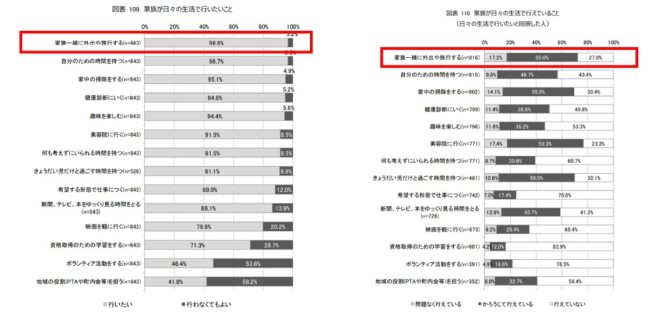
Source:https://www.murc.jp/wp-content/uploads/2020/05/koukai_200520_1_1.pdf
■MIMARU’s Commitment to Accessible Hospitality
At MIMARU apartment hotels, we are working to create a place where everyone, including people with disabilities and families with children who require medical care, can stay with peace of mind.
Here is an overview of MIMARU’s Commitment to Barrier-Free Hospitality:
https://mimaruhotels.com/news/accessible-tourism/
<Our Ongoing Commitment and Achievements>
•Based on feedback from families with children who require medical care, we have prepared useful items such as bath mats and diaper bins for their stay.
•We created access maps showing wheelchair-friendly routes and introduced accessible rooms and facilities on our website.
•At the time of booking, we offer a “Communication Sheet” to help us understand the needs of guests with disabilities and their families.
•We started a meal service in collaboration with Kyocera’s matoil, offering options for food allergies and gluten-free diets.
•We published a free travel guide titled “Enjoying Japan Together: Tokyo, Kyoto, and Osaka”, which shares recommended spots, transportation tips, and accessibility-friendly ways to enjoy Japan, all from a barrier-free perspective.

Japanese Version:https://mimaruhotels.com/manual/accessible-tourism-guide_jp
English・Traditional Chinese Version:https://mimaruhotels.com/manual/accessible-tourism-guide
At MIMARU, we will continue working to create a hotel where every family, including those with disabilities or children with medical needs, can stay together comfortably and with peace of mind, and fully enjoy the special experience that travel offers. Compared to many other countries, Japan’s cities are relatively advanced in terms of barrier-free access. That’s why we aim not only to improve our hotel facilities, but also to collaborate with restaurants, tourist spots, and local businesses to expand these efforts and help create a more travel-friendly environment for everyone.
●General Incorporated Association Try Angle
(Location: Kanazawa City, Ishikawa Prefecture / Representative Director: Mayuko Suda)
Try Angle is a general incorporated association working toward a society where everyone can enjoy travel with peace of mind, regardless of illness or disability, by supporting outings and travel for children who require medical care and providing training programs for travel and tourism businesses. Through these efforts, Try Angle promotes the development of universal tourism in Japan.
Currently, the organization offers the “Travel Guidelines for Children with Medical Needs” and operates a support website called “Tete to Te Travel Support”, which helps families of children living with medical devices such as ventilators or feeding tubes enjoy more accessible and comfortable travel.
HP:https://try-angle.org/
Tetetote Travel Support:https://tetetote-travel.jp/
●NPO Children’s Future (Location: Kamigyo Ward, Kyoto City, Representative Director: Kazunori Okamoto)
Our journey began in 2020 when a group of fathers, who are raising children with medical dependencies, founded a nursery school with an on-site nurse to provide care for these children who had no alternative options. Our goal is to become an organization that not only tends to the needs of medically dependent children and those with significant physical and mental disabilities but also offers support to their families. As of 2025, we manage three facilities: a small nursery school, a center-based after-school day service, and a house visit nurse station. We are committed to leading by example, operating short-stay facilities where medically dependent children, who are currently underserved in Kyoto, can reside, while also working on the development of new social resources.
HP:https://npo.kodomo-mirai22.jp/

